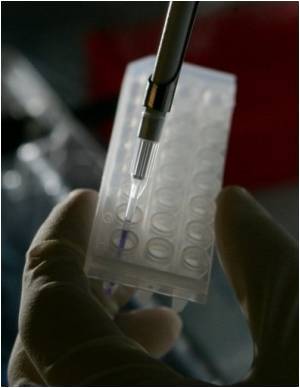Two new molecules that can kill lymphoma cells in mice have been identified by scientists at the University of Southern California.

The peptides inhibit the enzyme, causing p53 levels in cancer cells to rise, which lead to cell death.
Lymphoma tumours in mice injected with the two peptides showed marked regression with no significant weight-loss or gross abnormalities.
HAUSP, or herpesvirus-associated ubiquitin specific protease, is an enzyme that cleaves the normally occurring protein ubiquitin from substrates like p53. In a healthy environment, ubiquitin binds to a substrate, causing it to degrade and die.
"Given the mounting evidence that HAUSP serves as a pivotal component regulating p53 protein levels, the inhibition of HAUSP should have the benefit to fully activate p53," said Hye-Ra Lee, Ph.D., the study's first author and a research fellow in the Department of Molecular Microbiology and Immunology at the Keck School of Medicine of USC.
Using co-crystal structural analysis, Lee and her colleagues found a tight, "belt-type" interaction between HAUSP and a viral protein that causes Kaposi's sarcoma and lymphoma.
Advertisement
The researchers found that the peptides comprehensively prevented HAUSP from cleaving ubiquitin, allowing p53 levels to rise - thereby representing potential new chemotherapeutic molecules that can be used for anti-cancer therapies.
Advertisement
The finding appeared recently in the journal Nature Structural and Molecular Biology.
Source-ANI










